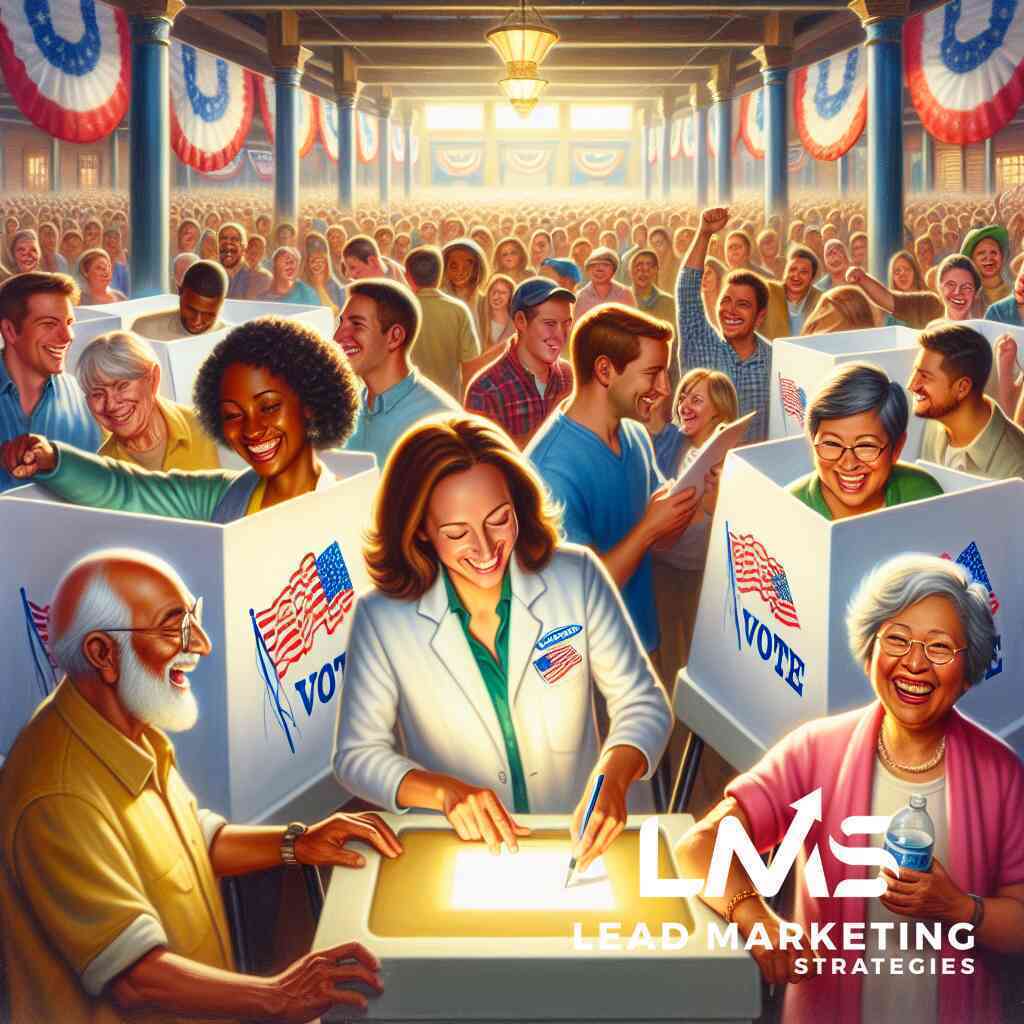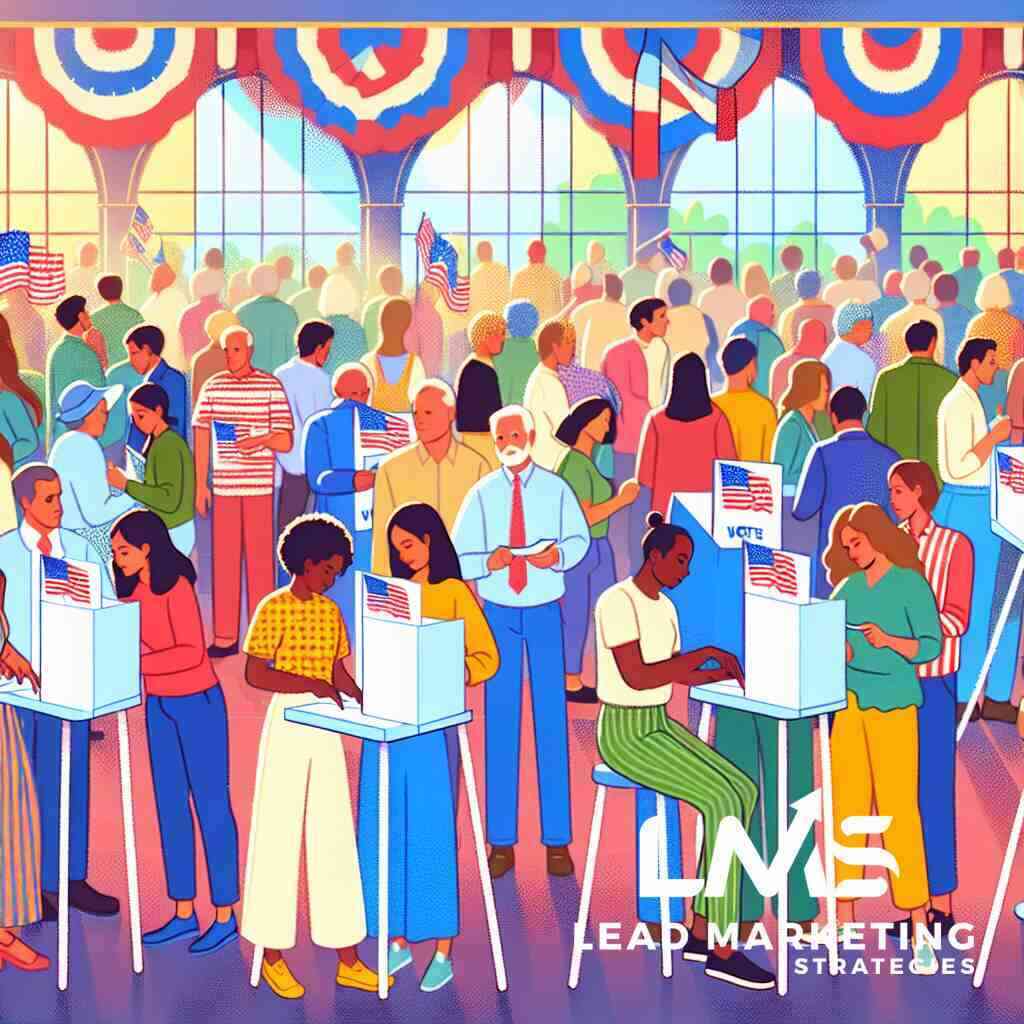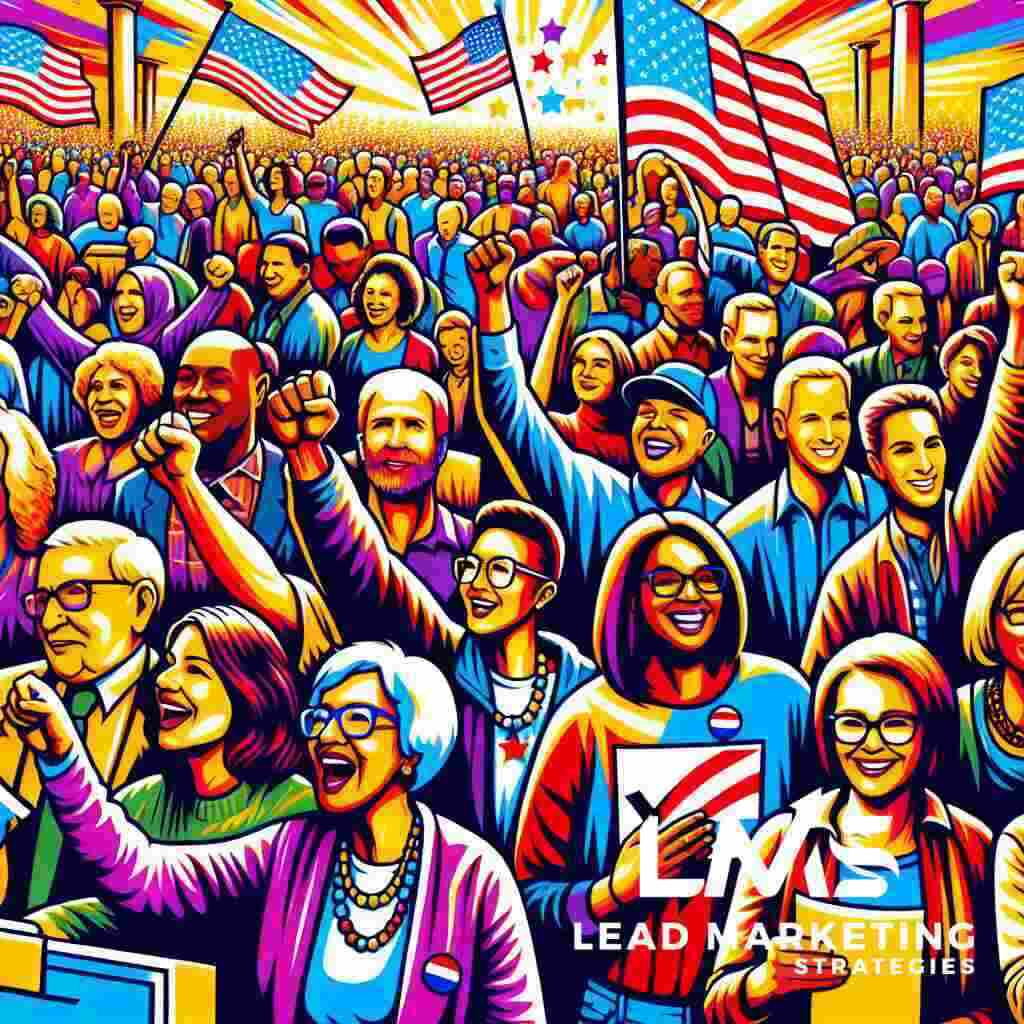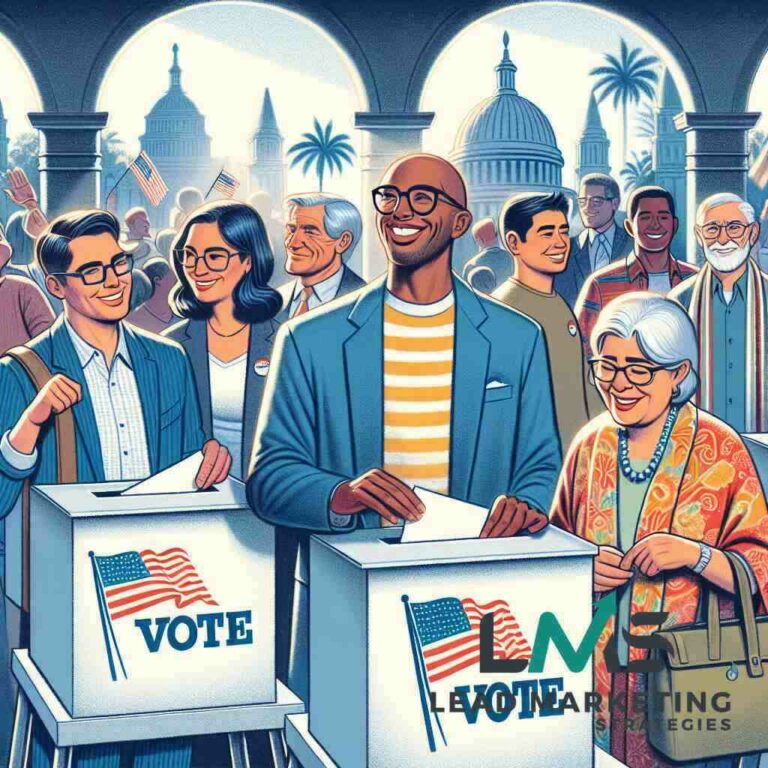Navigating the Intersection of Trust and Politics
Defining Voter Trust in the Political Arena
In the dynamic landscape of political marketing, understanding voter trust is pivotal. Voter trust can be seen as the confidence citizens place in political figures and institutions. This crucial element determines election outcomes and the integrity of the democratic process. Politicians aiming to build this trust often leverage strategic communication in politics, ensuring that their messaging resonates authentically with the electorate. To navigate the complex arenas of political competition, employing cutting-edge political marketing services that emphasize integrity and transparency is necessary. Such approaches foster a more profound connection with the public, laying the groundwork for sustained voter trust.
Historical Perspectives: Trust in Political Campaigns
Historically, the evolution of political campaigns has highlighted varying degrees of voter trust. In earlier times, political marketing relied heavily on direct outreach and speeches. However, with the advent of technology, these methods have transformed drastically. Despite the growing complexity of digital platforms, the core objective remains to bolster trust through transparent communication and strategic voter engagement. Examining past campaigns reveals patterns in how political operations have shifted towards a more data-driven approach to build confidence. This data-centric method involves utilizing insights from voter behavior, ultimately refining how campaigns convey messages to enhance voter trust.
The Role of Authenticity in Building Voter Trust
Authenticity stands as the cornerstone of fostering trust in political campaigns. The Method of Implementing Emotion in Political Branding in Political Marketing Strategies. Modern voters crave genuine connections with candidates who reflect their values and aspirations. Authentic communication involves an organization’s commitment to delivering consistent, honest messages that resonate with the electorate’s needs and expectations. Politicians can benefit significantly from employing digital engagement tools for campaigns that reinforce their integrity through genuine interactions. This authenticity, amplified across various media and platforms, enables candidates to effectively communicate their core values, policies, and personality traits. Such comprehensive strategies help dismantle skepticism and foster a positive environment where trust can flourish.
Understanding these historical and modern elements is essential for any campaign striving to gain and retain voter trust. By incorporating authenticity and strategic communication, campaigns can effectively navigate the intersection of trust and politics, setting the stage for a successful electoral journey.
Strategic Foundations for Trust-Building
Strategic Voter Communication: Crafting Credible Messages
In the realm of effective political marketing, the ability to craft credible and authoritative messages is indispensable. This requires a strategic approach to political message crafting, where emphasis is placed on clarity, transparency, and alignment with public sentiment. By designing messages that reflect the electorate’s values, candidates can foster a sense of trust and reliability, establishing a strong rapport with voters. Moreover, employing tools like political messaging precision can enhance communication effectiveness, ensuring that each message resonates and reinforces voter trust. Through this strategic communication, campaigns can navigate public perception and lay a solid foundation for electoral success.Trust-Orientedd Political Campaigns and Their Impact
Trust-oriented campaigns endeavor to place integrity and transparency at their core, significantly influencing electoral outcomes. These campaigns focus on trust-building techniques, such as authentic storytelling and consistent messaging, to enhance voter confidence and bolster public support. By prioritizing voter trust enhancement, political candidates can reshape their image and position themselves as relatable, sincere leaders. The importance of political campaigns cannot be overstated, as they play a critical role in establishing a candidate’s credibility and likability among the electorate. Through these trust-oriented efforts, campaigns witness a ripple effect, positively impacting voter turnout and engagement.
Integrating Political Transparency Initiatives into Campaigns
Political transparency stands as a cornerstone for electoral success, promoting trust and accountability amongst the electorate. Integrating transparency initiatives within political campaigns involves openly sharing information, motivations, and goals with the public. Such initiatives are not only about clear communication but also embody the ethical political marketing ideals. Employing political transparency for electoral success can significantly boost voter trust, creating a participatory environment where voters feel informed and empowered. Transparency catalyzes trust restoration, affirming candidates’ commitments to their constituents and fostering an open dialogue about policy and governance.
Empathetic Voter Engagement: Listening and Responding
Empathetic voter engagement is integral to building trust, requiring campaigns to listen and respond to the concerns of the electorate actively. This approach emphasizes two-way communication, where political figures not only disseminate information but also absorb feedback from their audience. Employing interactive voter outreach techniques, such as town hall meetings and digital forums, allows candidates to gauge voter sentiment and adapt accordingly. This empathetic engagement fosters a sense of inclusion and relevance among voters, solidifying their confidence in the candidates’ commitments. By prioritizing voter-centric engagement, campaigns can strengthen their connections with the public, ensuring that their messaging not only reaches but also resonates with the intended audience.
Advanced Techniques for Enhancing Voter Trust
Leveraging Political Engagement Tools for Greater Trust
In today’s digital age, leveraging political engagement tools plays an essential role in enhancing voter trust. These tools allow candidates to establish more direct and personal interactions with their constituents, facilitating transparency and communication. By integrating digital platforms for political campaigns, politicians can deliver real-time updates, policy details, and behind-the-scenes views of their campaign activities. This level of transparency not only keeps voters informed but also builds confidence in their candidates. Furthermore, social media interactions and digital polling provide immediate feedback, enabling candidates to address concerns and strengthen their relationship with the electorate. Such proactive engagement tactics foster a sense of inclusion, which is vital for maintaining and increasing voter trust. Understanding Political PR’s Role in Voter Trust in 2025
Candidate Credibility Tactics: Building a Trusted Persona
Building a trusted persona is crucial for any candidate seeking to enhance voter trust and confidence. Candidates can utilize various credibility tactics, including consistently delivering on promises and maintaining transparency about their motivations and goals. A clear demonstration of integrity and ethical behavior often correlates strongly with increased trust levels among voters. Top Strategies for Digital Voter Outreach on Long Island. By actively showcasing authentic and relatable sides of their personalities, candidates can bridge the gap between themselves and the electorate. This humanization of political figures is imperative for maintaining support across the political spectrum. Employing political party trust dynamics effectively helps candidates navigate complex partisan landscapes and appeal to a broader audience.
Reputation Management in Politics: Mitigating Risks
Effective reputation management for candidates is a key strategy for mitigating risks associated with electoral campaigns. By proactively managing their public persona, candidates can anticipate potential challenges and address concerns before they jeopardize voter trust. This involves monitoring public sentiment, addressing misinformation, and ensuring consistent, positive messaging across all platforms. Utilizing advanced analytics to track reputation metrics enables candidates to adapt and respond swiftly to dynamic political climates. In a highly scrutinized environment, maintaining a positive reputation can be the deciding factor that influences voter confidence and electoral success.
Interactive Political Outreach: Deepening Voter Connections
Deepening voter connections through interactive political outreach is paramount for sustaining and enhancing voter trust. By engaging directly with constituents through town halls, webinars, and social media Q&A sessions, candidates demonstrate a genuine interest in voter concerns and feedback. These participatory democratic initiatives empower voters, making them feel valued and heard. Exploring Innovative Voter Engagement Tactics for 2025. The strategic use of these platforms allows candidates to communicate their policies effectively, clear up misunderstandings, and strengthen their image as approachable and trustworthy leaders. Such interactive outreach not only fosters lasting connections but also ensures a broader understanding and acceptance of candidates’ visions and goals.
The Science of Trust Restoration
Electoral Trust Mechanisms: From Theory to Practice
Restoring electoral trust necessitates a profound understanding of both theoretical frameworks and their practical applications in political marketing. The implementation of election integrity mechanisms is essential to maintaining transparency and fostering confidence. These mechanisms involve clear processes and protocols ensuring fair electoral practices. They provide voters with consistent assurances that elections are conducted ethically, reducing mistrust and skepticism. By bridging the gap between theory and practice, political campaigns can effectively employ these strategies to reassure voters, cultivating a sense of reliability. Authentic communication endeavors reflective of these principles further contribute to the overarching aim of restoring voter trust.
Participatory Democracy Initiatives: Empowering Voters
Embracing participatory democracy initiatives is a transformative step towards empowering voters and reinstating their trust in the electoral system. These initiatives encourage direct voter involvement in decision-making processes, ensuring that their voices resonate at every stage of the political journey. Political campaigns that prioritize such inclusive approaches emphasize the value of each voter, creating an environment where democratic engagement flourishes. By employing voter confidence strategies, campaigns can invigorate the electorate, making them active participants rather than passive observers. This empowerment strengthens the democratic fabric and lays the groundwork for enhanced trust.
Consistency in Political Messaging: Maintaining Public Confidence
Consistency is a key ingredient in maintaining public confidence through political messaging. Numerous campaigns fall short when messages fluctuate, leading to voter confusion and mistrust. To counteract this, it is paramount that candidates uphold a steadfast message throughout their campaign, aligning with their core values and policies. This consistency assures voters of the candidates’ reliability and commitment, reinforcing trust. By incorporating strategic voter communication techniques, campaigns can ensure that their messaging remains clear and credible across all platforms. Maintaining this uniformity helps cultivate a trustworthy image, which is essential for connecting with voters on a deeper level.
Authenticity in the Digital Age
Trustworthy Political Branding in a Digital Era
In the digital era, establishing a trustworthy political brand is crucial for gaining and maintaining voter trust. As political landscapes evolve, digital branding for political success becomes indispensable. A robust digital presence allows candidates to communicate their values, policies, and personality in a way that resonates with voters. By crafting a brand image that aligns with the electorate’s expectations, candidates can build a believable and credible online persona. Employing innovative political marketing techniques, such as story-driven content and engaging multimedia campaigns, enhances the authenticity of political branding efforts. This approach helps cultivate a consistent brand narrative, thereby strengthening the voter-candidate connection in the virtual realm.
Political SEO Consulting: Enhancing Online Trust Signals
Effective political SEO consulting for political campaigns is key to enhancing online trust signals and is vital for electoral success in the digital age. Search engine optimization ensures that candidates’ online content is both visible and credible, reinforcing their integrity. Strategic keyword usage, content optimization, and backlinking improve a candidate’s search engine rankings, making them more accessible to voters seeking information. By focusing on relevant and authoritative content, political campaigns can amplify their online presence, fostering confidence amongst the electorate. The alignment of SEO practices with genuine, value-driven messaging signals trustworthiness, encouraging prospective voters to engage more deeply with the candidate’s online materials.
Voter Perception Management in Social Media Campaigns
Social media has become a pivotal tool for managing voter perceptions, offering platforms where candidates can engage audiences directly. Crafting a transparent and consistent social media narrative is essential for building trust. Interactive content such as live Q&A sessions, behind-the-scenes footage, and real-time updates brings a human aspect to political figures, which resonates well with audiences. Furthermore, addressing voter concerns promptly and thoughtfully in these spaces enhances credibility. Managing perception through these dynamic platforms assists in real-time reputation management, addressing and rectifying misinformation swiftly. As a result, campaigns that prioritize transparent and relatable social media engagement are more likely to elevate their trust quotient among the electorate.
Conclusion
The Path Forward: Cultivating Lasting Voter Trust
As the political landscape continues to evolve, cultivating lasting voter trust is paramount for future electoral success. Political campaigns must emphasize transparency and integrity, utilizing innovative political marketing in Vermont to foster genuine connections with constituents. By engaging in comprehensive voter outreach and adopting ethical strategies, candidates can enhance trust levels and build sustained relationships with the electorate. Exploring the Future of Political Fundraising Online: A continuous commitment to transparent communication and integrity-focused initiatives is necessary to maintain and increase voter confidence. With political marketing services from Lead Marketing Strategies, campaigns can effectively adapt to the ever-changing dynamics of voter expectations and preferences, ensuring resilient voter trust over time.
Future Trends in Trust-Building Political Strategies
Looking ahead, emerging trends in political strategies will likely focus on further integrating advanced digital technologies for electoral engagement. Strategies such as digital branding for political success will play a central role in shaping candidates’ public images and reinforcing voter trust. Moreover, interactive platforms that enhance voter participation and empower communities will become indispensable. As political campaigns strive to remain relevant, they must harness these technological innovations while committing to ethical practices. With the guidance of expert political marketing strategies like those offered by Political Marketing Strategies, candidates can navigate this landscape adeptly, fortifying their trust-building efforts and ensuring their political success.
Frequently Asked Questions
Question: How can Political Marketing Strategies help enhance voter trust through strategic voter communication in the realm of political engagement?
Answer: Political Marketing Strategies specializes in crafting and delivering strategic voter communication that enhances voter trust. By emphasizing clarity, transparency, and alignment with public sentiment, we design messages that resonate with the electorate’s values. Our use of advanced political engagement tools allows for more personalized and direct interactions with voters. This strategic approach not only fosters trust but also ensures a robust connection with constituents, paving the way for successful electoral outcomes through our political marketing services.
Question: What role does Political Marketing Strategies play in reinforcing candidate credibility and building a trusted political persona?
Answer: At Political Marketing Strategies, we understand that candidate credibility is crucial for gaining voter trust. We employ various candidate credibility tactics that include maintaining transparency about motivations and goals, showcasing integrity, and delivering on promises. By helping candidates highlight their authentic and relatable personas, we bridge the gap between them and the electorate, enhancing trust. Our expertise in political brand development facilitates a trustworthy image, essential for maintaining support across the political spectrum.
Question: How can Political Marketing Strategies help implement political transparency initiatives to boost voter trust in election campaigns?
Answer: Political transparency is a cornerstone of our services at Political Marketing Strategies. We assist political campaigns in integrating transparency initiatives that promote openness and accountability. By sharing information and goals openly, campaigns can create a participatory environment where voters feel informed and empowered. Our approach to transparent electoral strategies involves clear and consistent messaging, which is instrumental in building and restoring voter trust. These initiatives not only reinforce ethical political marketing ideals but also lay the groundwork for a positive voter-candidate relationship.
Question: How does the blog titled ‘How Political Marketing Strategies Can Boost Voter Trust’ reflect the importance of authenticity in political communication?
Answer: The blog ‘How Political Marketing Strategies Can Boost Voter Trust’ underscores the pivotal role of authenticity in political communication. Modern voters desire genuine connections with candidates who mirror their values and aspirations. Political Marketing Strategies focuses on authenticity by employing digital engagement tools and interactive political outreach to reinforce integrity through genuine interactions. This dedication to authenticity is exemplified by our emphasis on consistent, honest messaging that resonates with voter expectations. By prioritizing authenticity, we help campaigns dismantle skepticism and foster an environment where trust can flourish.
Question: What innovative voter engagement strategies does Political Marketing Strategies offer to strengthen voter trust through interactive political outreach?
Answer: Innovative voter engagement is critical to Political Marketing Strategies’ approach to enhancing voter trust. Explore the Definition of Political SEO for Campaign Success at Political Marketing Strategies. We offer a range of interactive political outreach strategies, including town hall meetings, digital forums, and social media campaigns. These participatory democratic initiatives empower voters, making them feel valued and heard. Exploring Innovative Voter Engagement Tactics for 2025. Our interactive outreach allows candidates to communicate their policies effectively, address voter concerns promptly, and demonstrate genuine interest in voter feedback. By deepening voter connections, we help campaigns strengthen their public image as approachable and trustworthy leaders, thereby nurturing lasting electoral trust.






